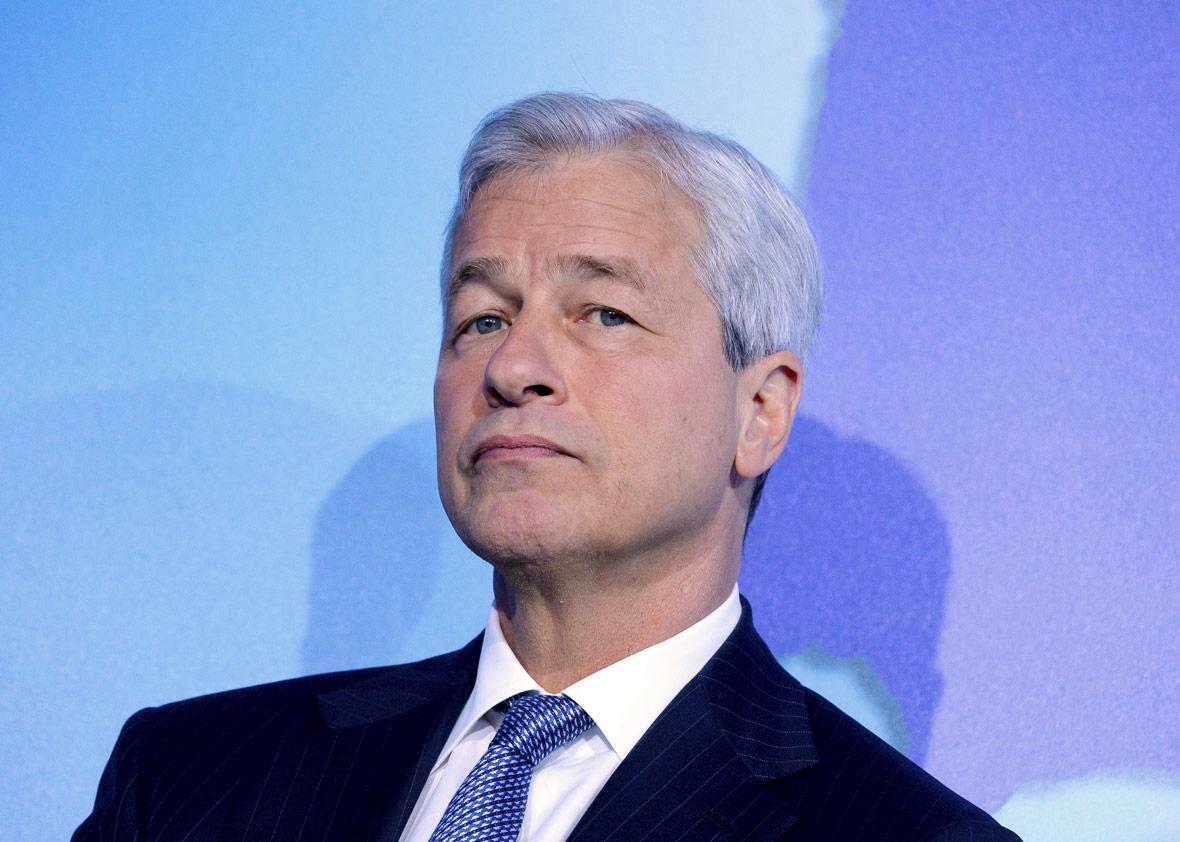Jamie Dimon is sui generis, and not because of his 12-years-and-running tenure at the helm of JPMorgan Chase. By now Dimon is nearly iconic in his acerbity and general spikiness. He doesn’t laugh at himself as Lloyd Blankfein, Wall Street’s other long-standing survivor, occasionally does. He doesn’t suffer fools and doesn’t hesitate to let you know you’re being one.
On JPMorgan’s earnings call last Friday, Dimon took one questioner to task for having the temerity to ask about his company’s bond business. “Who cares about fixed-income trading in the last two weeks of June? I mean, seriously.” He then let loose with a four-minute, Howard Beale–ish, pox-on-both-their-houses rant about the state of affairs in Washington. “It’s almost an embarrassment being an American citizen traveling around the world and listening to the stupid shit we have to deal with in this country. And at one point we all have to get our act together or we won’t do what we’re supposed to [do] for the average Americans.”
Want to listen to this article out loud? Hear it on Slate Voice.
The U.S. economy is growing, Dimon said, because of the brilliance of private-sector companies like JPMorgan Chase. But growth would be much stronger “had we made intelligent decisions and were there not gridlock.” He complained that “we are unable to build bridges, we’re unable to build airports, our inner-city school kids are not graduating.”
Of course Dimon, who fancies himself a truth-teller, did not deign to name names. And he acted out like a classic low-information voter. “Washington” and “gridlock” aren’t the reason we don’t have more infrastructure funding or greater economic stimulus, though they are definitely fun to fume about. Republicans in Washington are the problem. They stood in the way of infrastructure spending when they controlled the House under a Democratic president and refused to engage on key issues. And now that they control both houses of Congress and the White House, they have proven utterly unable to pass measures that would support infrastructure spending.
Dimon certainly knows this. But there’s something else at work, which explains why Dimon doesn’t call out Republicans by name. As much as he’s a patriotic American who wants the best for his country and its inhabitants, what Jamie Dimon really wants is what’s best for JPMorgan Chase and its shareholders.
The list of particulars that he wants from Washington, aside from infrastructure spending and a vague call for improved education, is tax cuts and lighter regulation. “Corporate taxation is critical to that, by the way. We’ve been driving capital earnings overseas, which is why there’s $2 trillion overseas benefiting all these other countries and stuff like that,” he continued. And he later claimed that “we have become one of the most bureaucratic, confusing, litigious societies on the planet.”
On these two vital issues, which have nothing to do with the welfare of average Americans, Dimon’s problems are with Democrats, and the solution lies with the Republicans. Let’s remember, when Democrats controlled all levels of government in 2009 and 2010, they passed Dodd-Frank, which pushed very large banks like JPMorgan Chase to hold more capital, use less leverage, pass annual stress tests, and stop proprietary trading. They also created the Consumer Financial Protection Bureau, which has peskily harangued banks to cease business practices that treated customers like marks rather than valued stakeholders.
Now, banks never know what’s good for them. Which is why they went bust en masse in the late 1920s and in the mid–1980s, and in 2008 and 2009, just years after Washington bent policy in their direction. And what banks today think is good for them is a repeal of Dodd-Frank and the declawing of the CFPB. Financial institutions dearly want less oversight, a freer rein to take on more leverage and dispense more capital to shareholders, and fewer officials looking at the way they treat the customers. And only the Republicans in Congress and the White House can deliver these goodies.
The same holds for taxes. Corporate America in general, and banks in particular, believe tax reform (read: massive tax cuts for corporations and rich people) will be good for them. If companies were free to repatriate foreign earnings, it would lead to higher dividends and more cash deployed in deals, both of which are good for Wall Street. Huge tax cuts on the highest earners would also mean a lot more business for Chase’s private banking business. And again, only the Republicans in Washington—the same ones who won’t act on infrastructure and embarrass Jamie Dimon when he travels abroad—can deliver lower taxes.
Which is why Dimon remains on Trump’s Strategic and Policy Forum and continues to show up cheerfully at the White House. While he’d like his employees, peers, and fellow Manhattanites to believe he’s an industrial statesman who speaks truth to power, he’s much more interested in simply speaking to power.
